
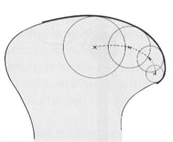
The jaw joint (or temporomandibular joint) is not a fixed hinge, but a more complex structure where the location of the axis of rotation changes and simultanously translates as the jaws opens.
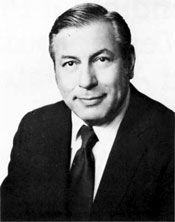
Meet Philip H. Levy, DDS
Developer of the "Levy Lingual Shelf," and a noted lecturer, teacher and clinician, Dr. Levy has made an intensive study of the stomatognathic system.
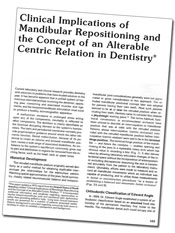
A 22-page monograph by Dr. Philip Levy explanding upon his presntation in the Symposium on "An Alterable Centric Relation In Denistry." Includes case studies of patients and follow-up care for up to 11 years post-treatment.
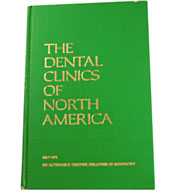
Dr. Philip Levy was a Guest Editor for a Symposium on "An Alterable Centric Relation In Denistry" published in the July 1975 issue of the Dental Clinics of North America.
The issue includes 10 articles contributed by respected educators and researchers in the fields of physiology, anatomy, endocrinology, and history.
Case Study 2: Patient with TMD symptoms
Below are some case studies relating to the TMD symptoms that Dr. Levy treated. You can clearly see the nice transition from the beginning to the end and how Dr. Levy accomplished the task.
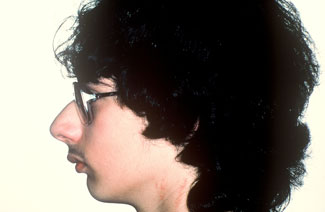
Situation:13-year old patient presented with long standing TMD symptoms: Opening clicks of both TMJ, almost constant neck pain, headaches. Orthognathic surgery was recommended for relief and cosmetic reasons.
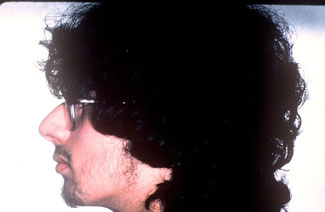
Post-treatment photo. No remaining TMJ symptoms. No surgery was performed.
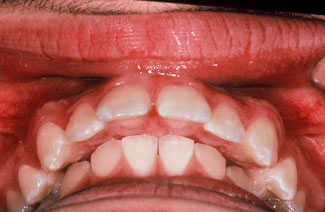
Intra-oral pre-treatment photo.
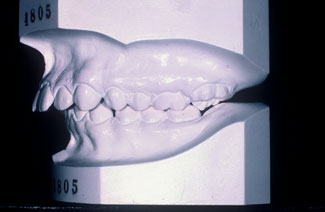
Dental cast showing Class II Division I malocclusion with severe overjet.
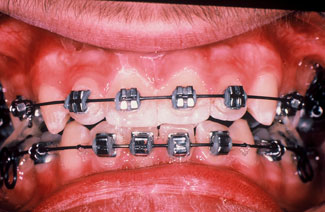
Treatment in progress: fixed appliance.
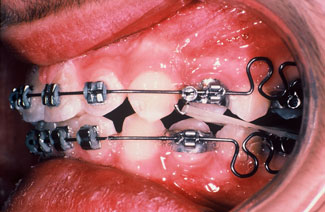
Lingual shelf in place, extra-oral maxillary headgear worn at night in addition to class II elastics.
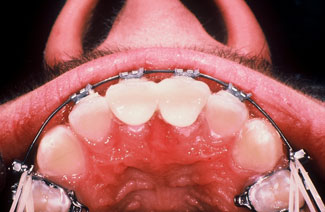
Lingual shelf shown on maxillary incisor teeth.
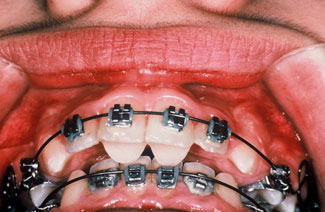
This photo of a different patient shows how some patients are able to frustrate the lingual shelf by biting behind it.
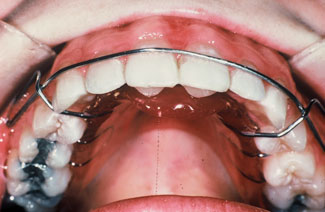
View of the maxillary acrylic inclined plane utililzed to frustrate patient’s ability to bite behind the shelf.
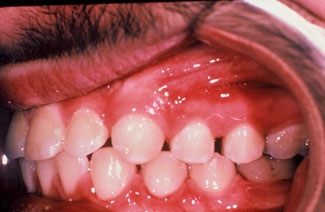
Intra-oral photo of finished case.
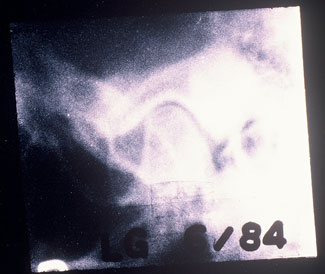
Patient X-ray June 1984.
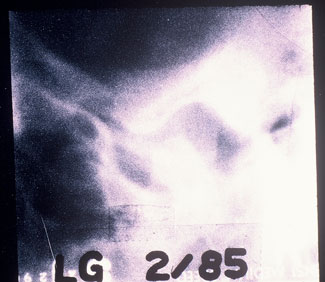
Patient X-ray February 1985.
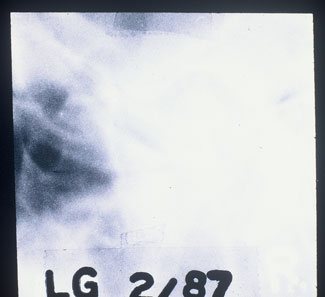
Patient X-ray February 1987.







